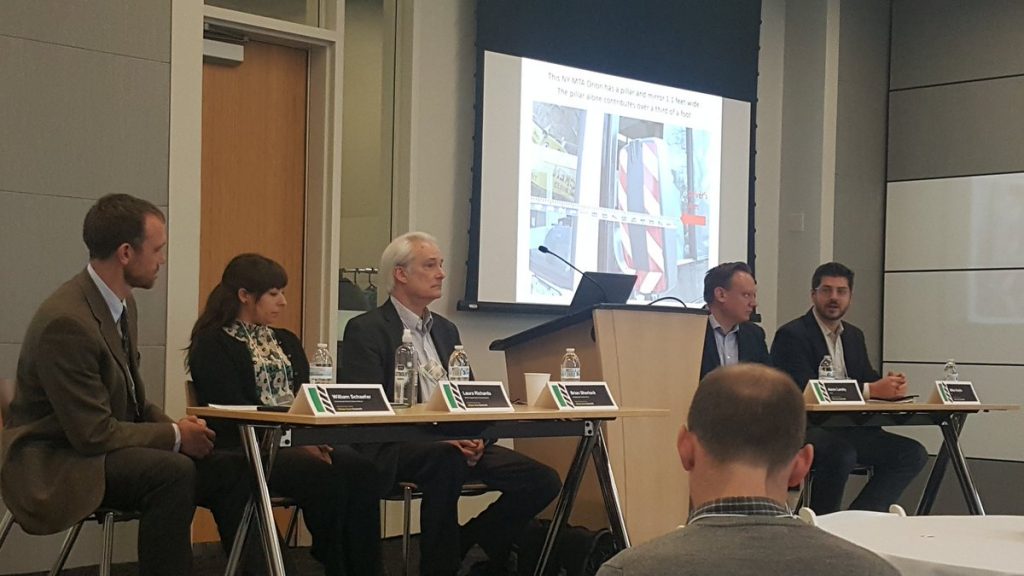
Driver Training and Accountability Panel
On March 31st, WABA hosted the region’s first Vision Zero Summit at the Milken Institute on the campus of The George Washington University. The summit was presented by the AAA-MidAtlantic and The George Washington University Hospital. The event was sold out with a waiting list. 170 people attended.
The morning plenary featured an opening welcome by Dr. Babak Sarani, Associate Professor of Surgery and the Director of the Center for Trauma and Critical Care at The George Washington University Hospital.
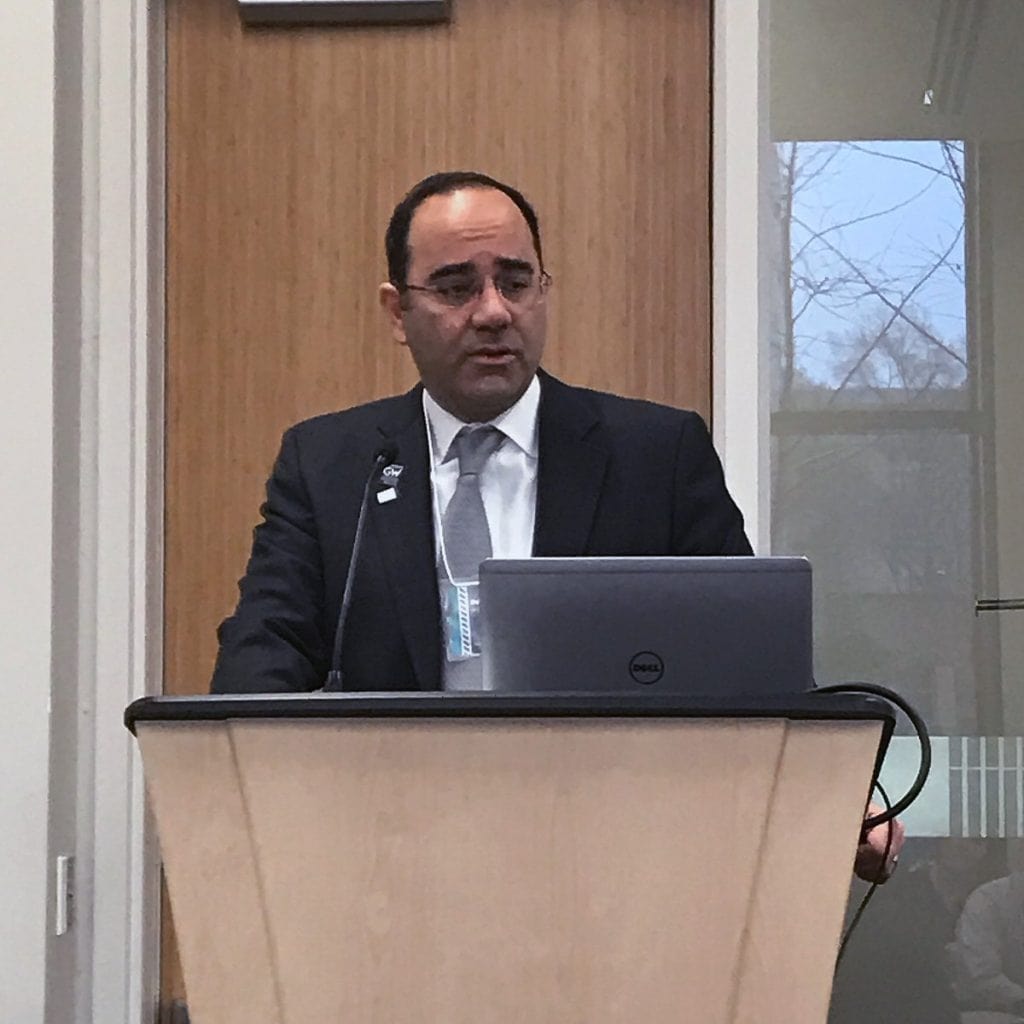
Dr. Babak Sarani
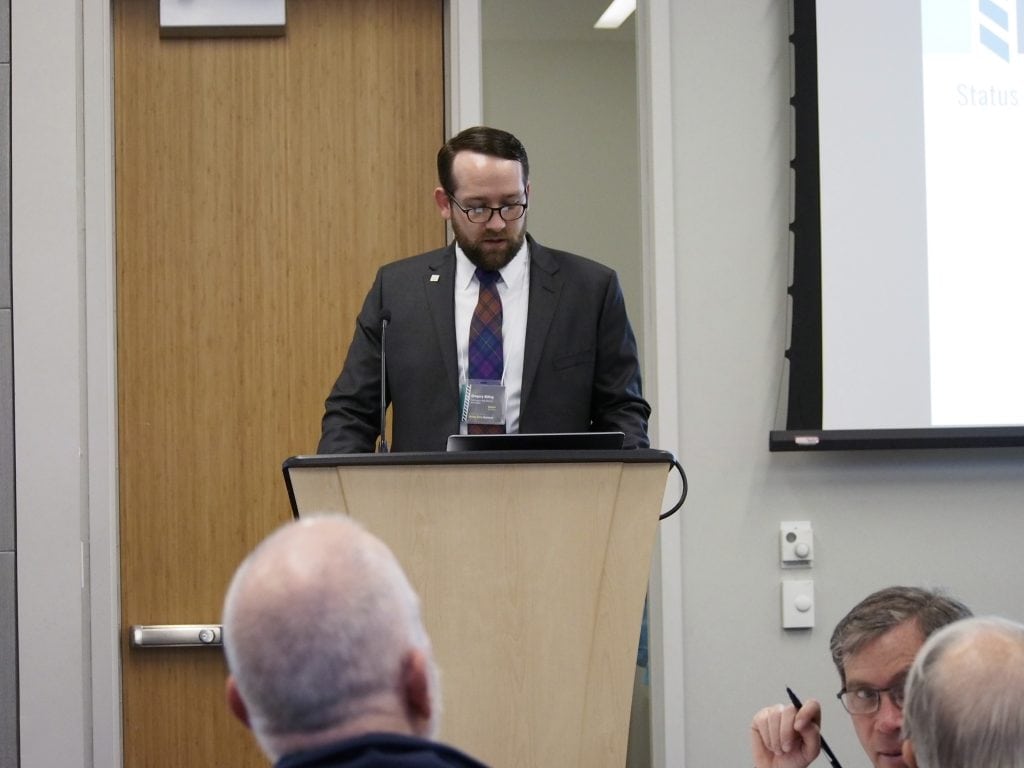
Gregory Billing, Executive Director, WABA
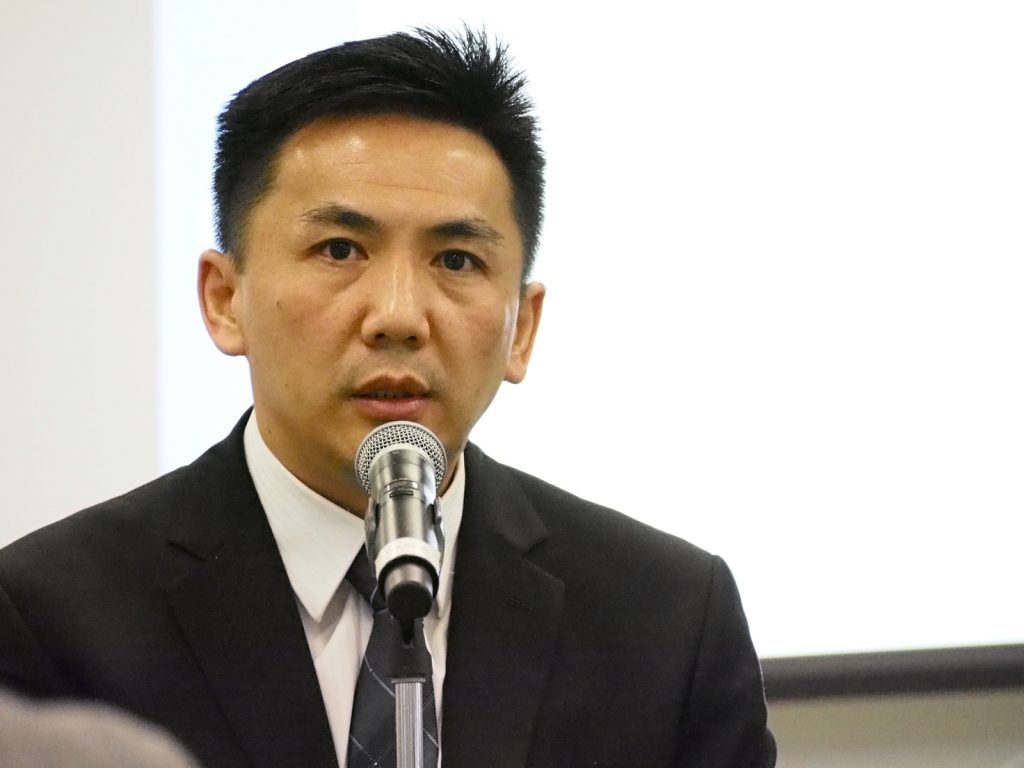
Dr. C.Y. David Yang, AAA Foundation
- Focus on education and reduce the burden
- Focus on engineering and roadway design
- Don’t just invest in downtown and business districts. Invest in people
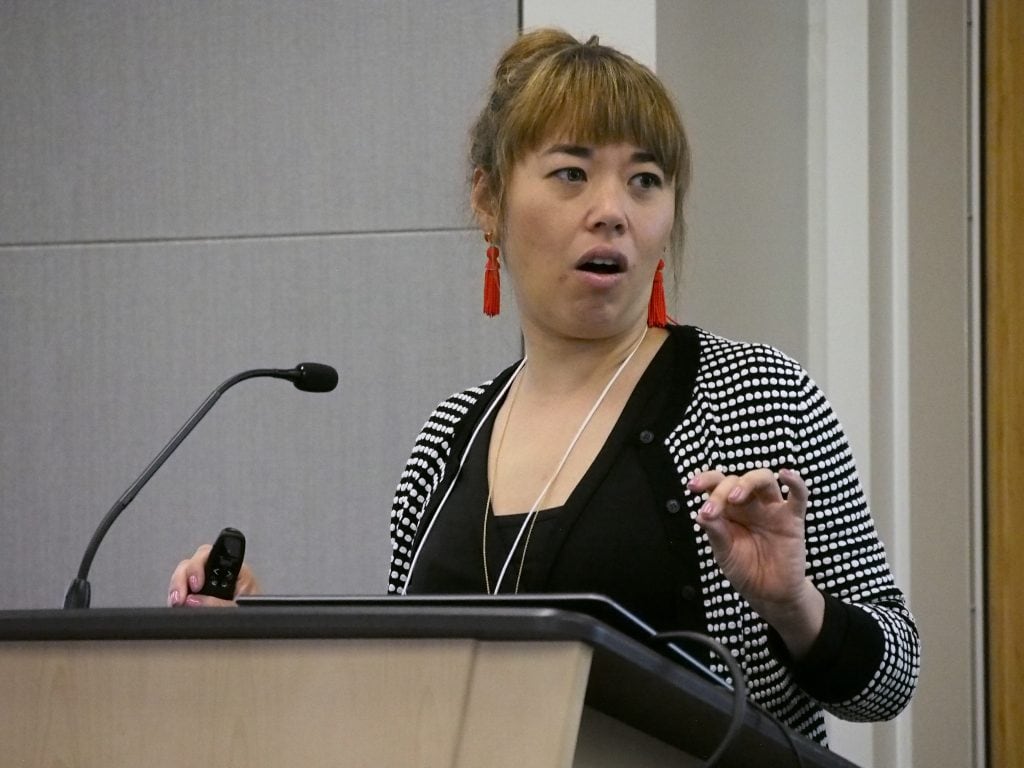
Emiko Atherton, Smart Growth America
Opportunities for Cross-jurisdictional Cooperation was moderated by Robert Thomson of the Washington Post. It was his last day at the Post before retiring and he graciously spent it with us. His panelists were Montgomery County Councilmember Hans Riemer, DC Department of Motor Vehicles Lucinda Babers, KLS Engineering owner, Leverson Boodlal and Prince George’s County Pedestrian and Bicycle Manager, Karyn McAlister.
Panelists discussed the Metropolitan Washington Council of Governments and their role as the channel that we’ve traditionally used for regional coordination. Although it is a vehicle for coordination, the quality of the products that come out of that coordination is debatable.
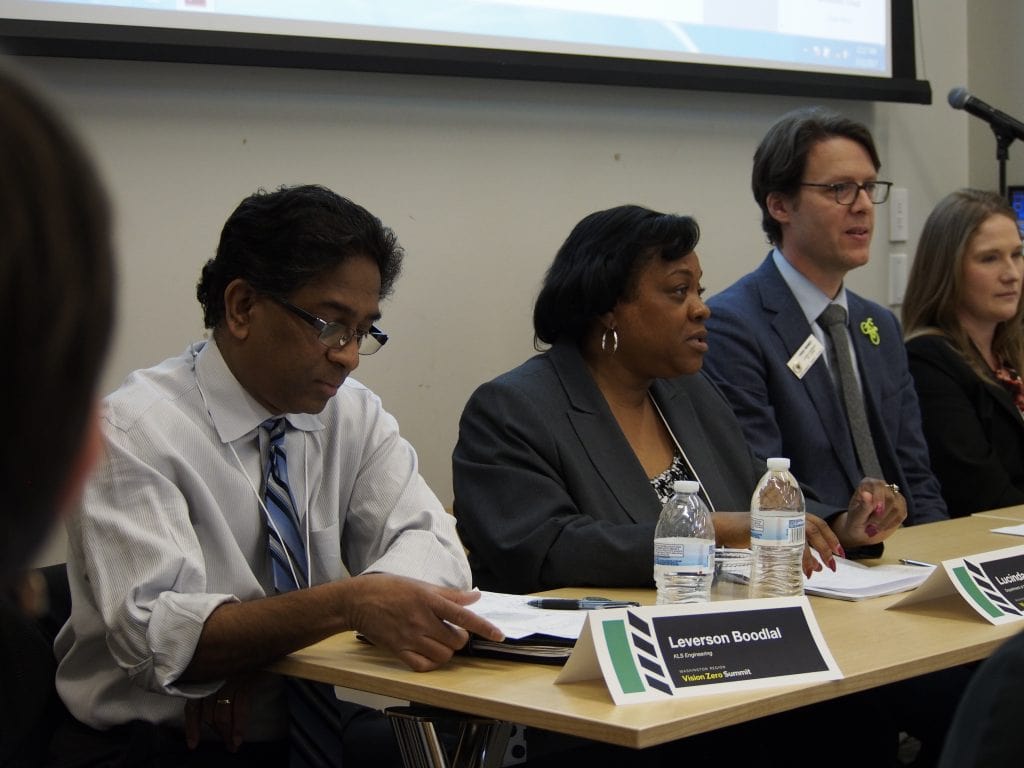
Opportunities for Cross-jurisdictional Cooperation Panelists
Vision Zero and High -Risk Road Users discussed how was can make roads safe for those with disabilities, youth, pedestrians, bicyclists and the elderly. The panel was moderated by Michele Blackwell, Chief of Staff for Councilmember- At- Large, Elissa Silverman. The panel consisted of Susie McFadden-Resper from the Office of Disability Rights, Sterling Stone, Executive Director of Gearin’ Up Bicycles and Melissa McMahon, transportation planner for Arlington County. Unfortunately, DDOT hasn’t always paid attention to curb-cuts and sidewalk access to stay in accordance with the American Disabilities Act (ADA). Susie McFadden-Resper has only been in her role for 2 years and is starting to change the behavior of DDOT when permitting takes place. Her work on this area will definitely help make it safer for those with disabilities.
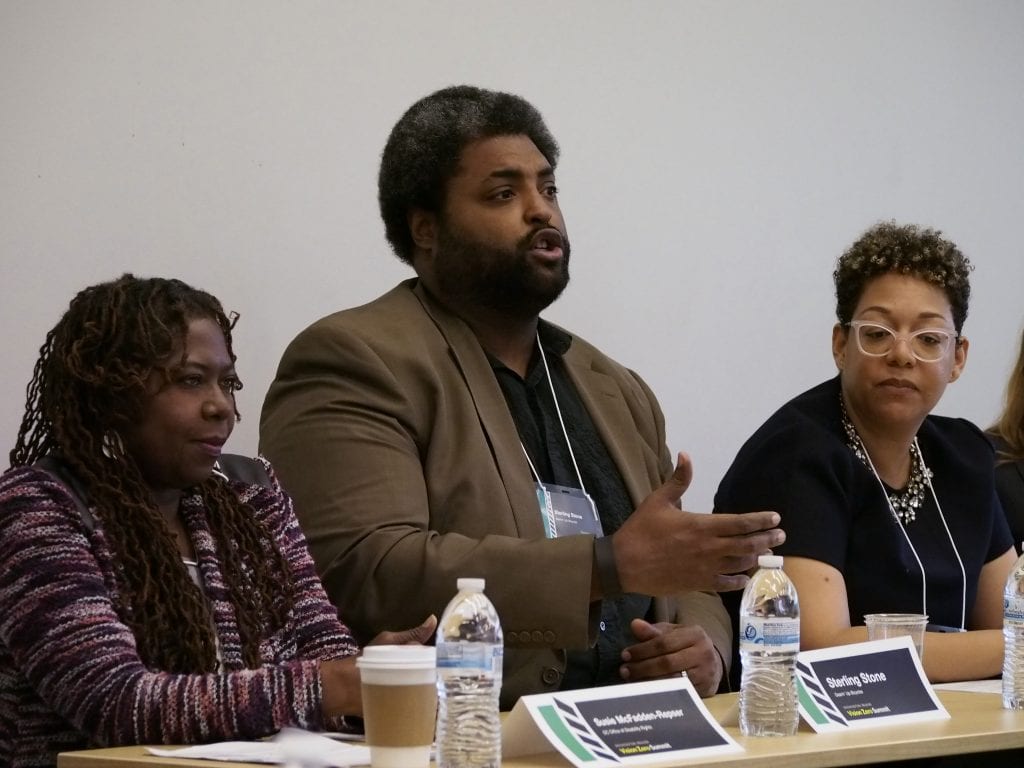
Vision Zero and High- Risk Users Panelists
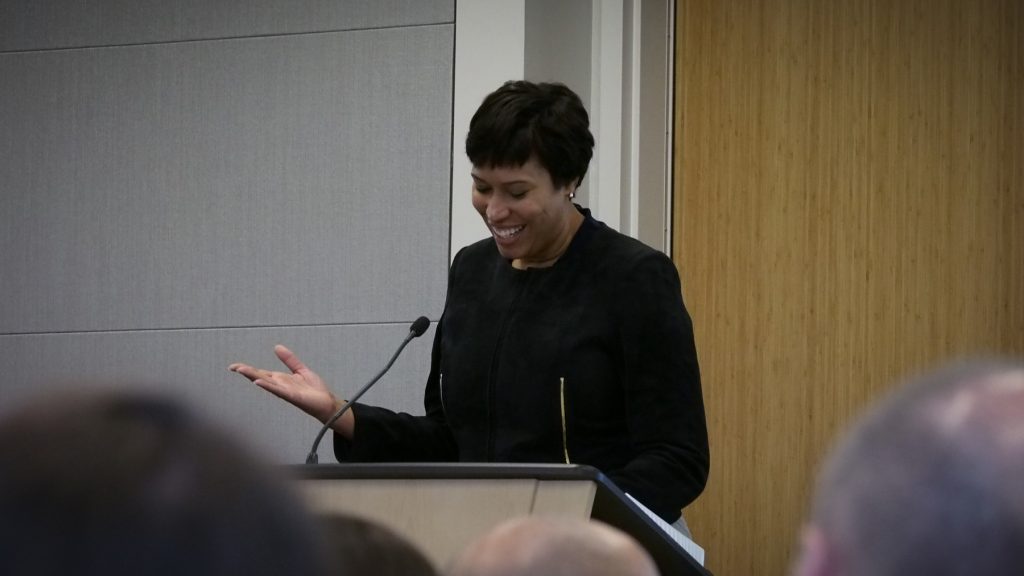
Mayor Muriel Bowser
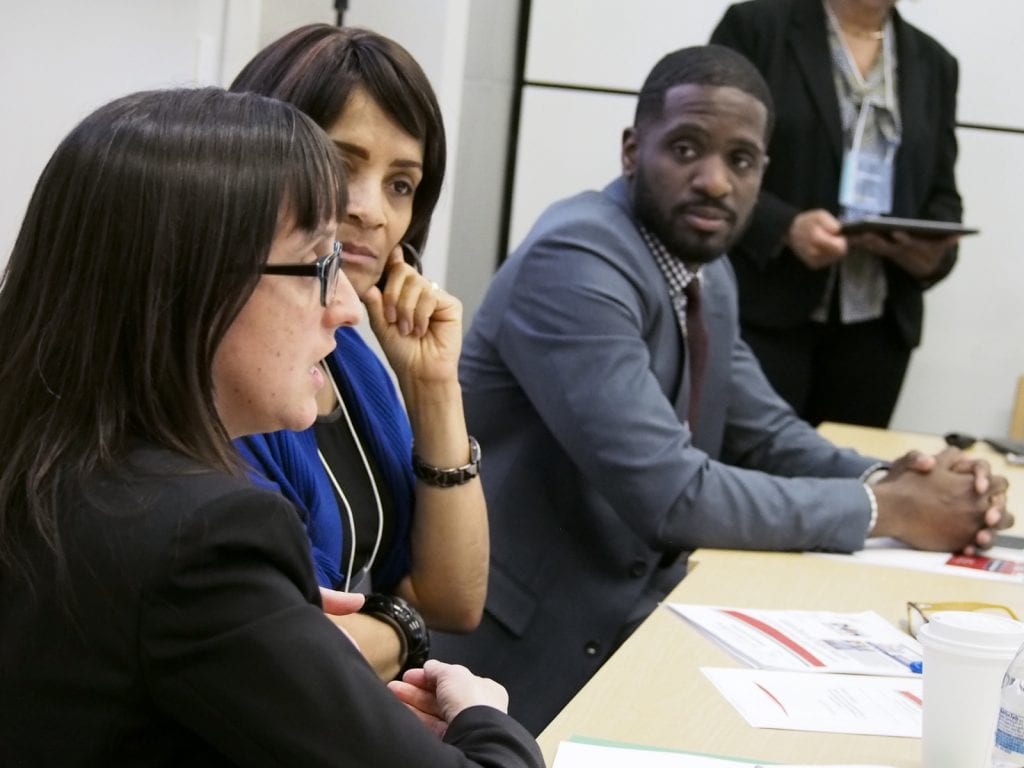
Vision Zero and Public Health Panelists
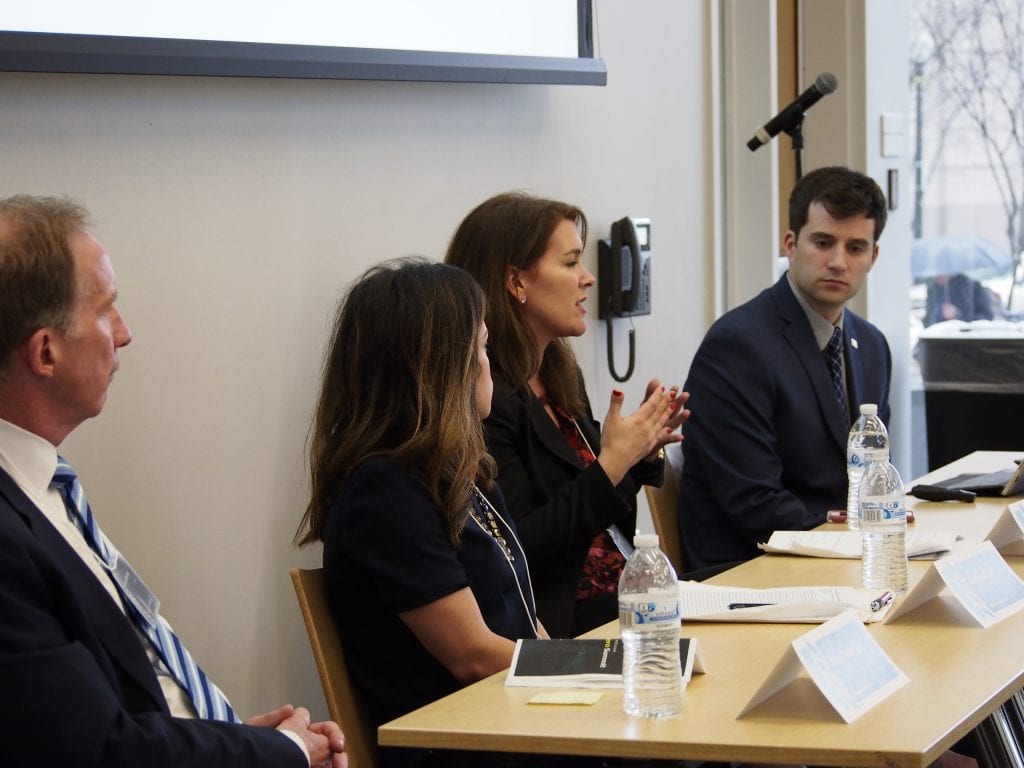
Human Impacts of Traffic Fatalities Panelists
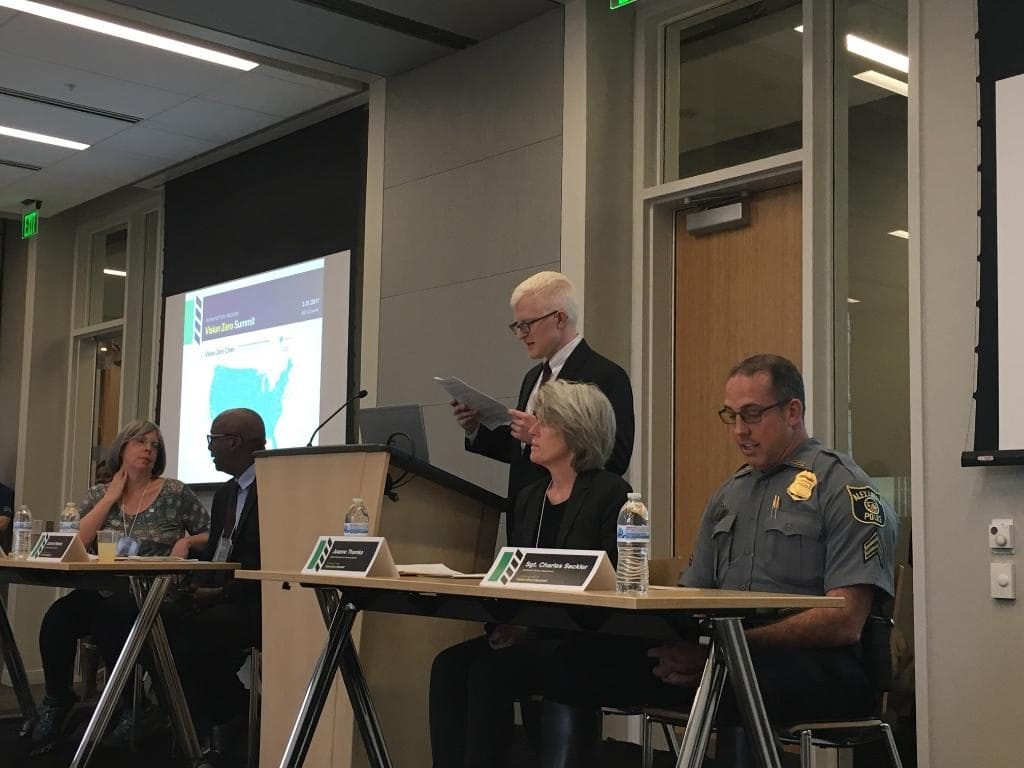
Vision Zero and Enforcement Panel
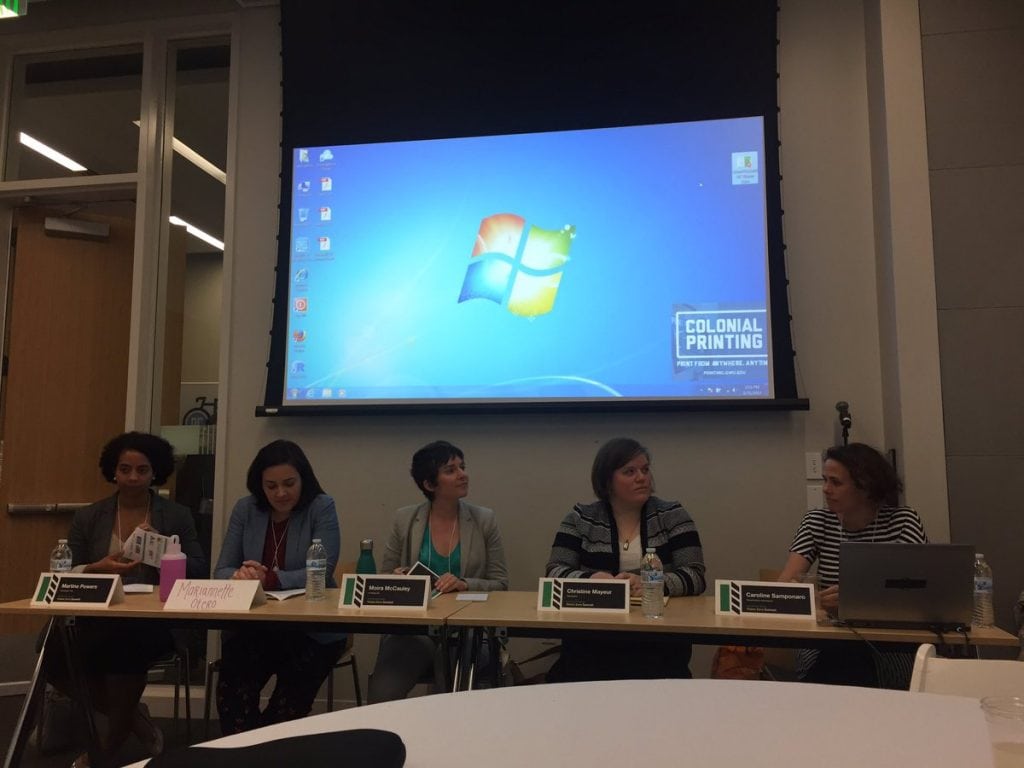
Winning Over the Public to Vision Zero Panel
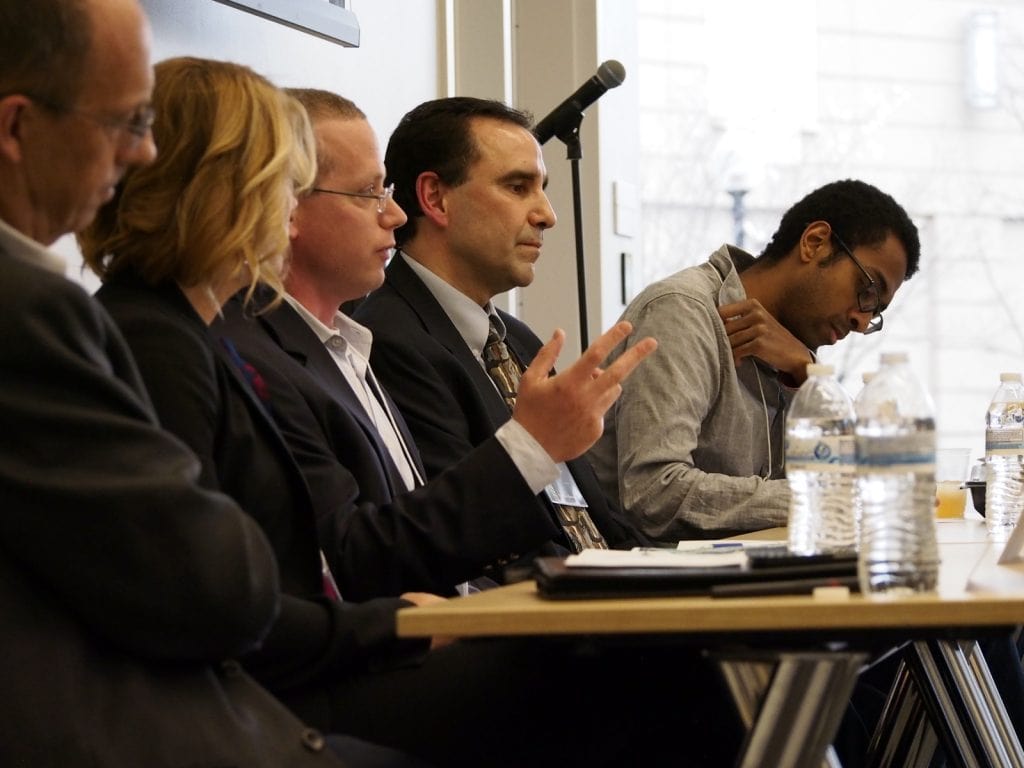
Infrastructure: Designing Safe Streets Panel

Driver Training and Accountability Panel
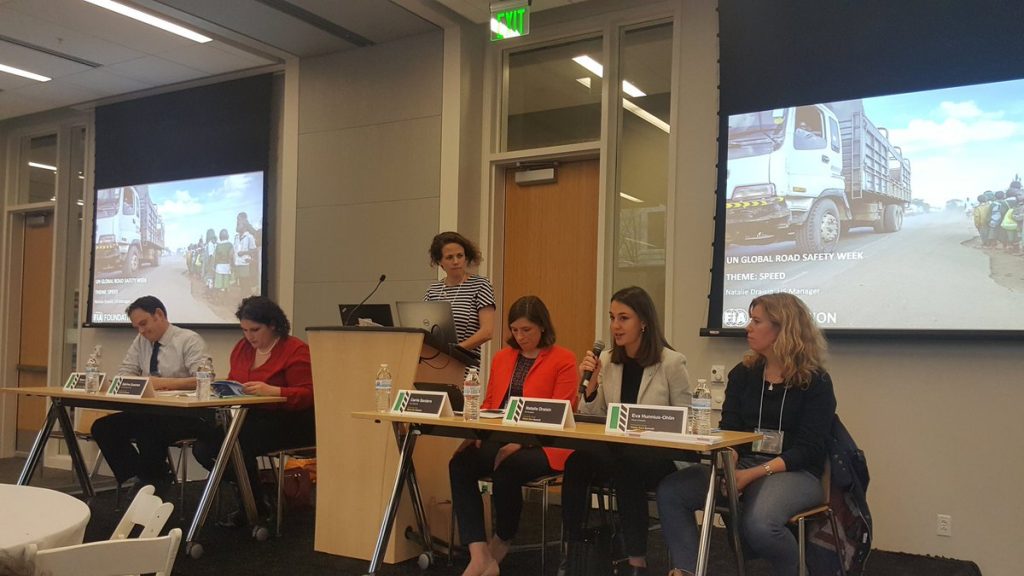
Lessons Learned from Other Cities Panel















You must be logged in to post a comment.